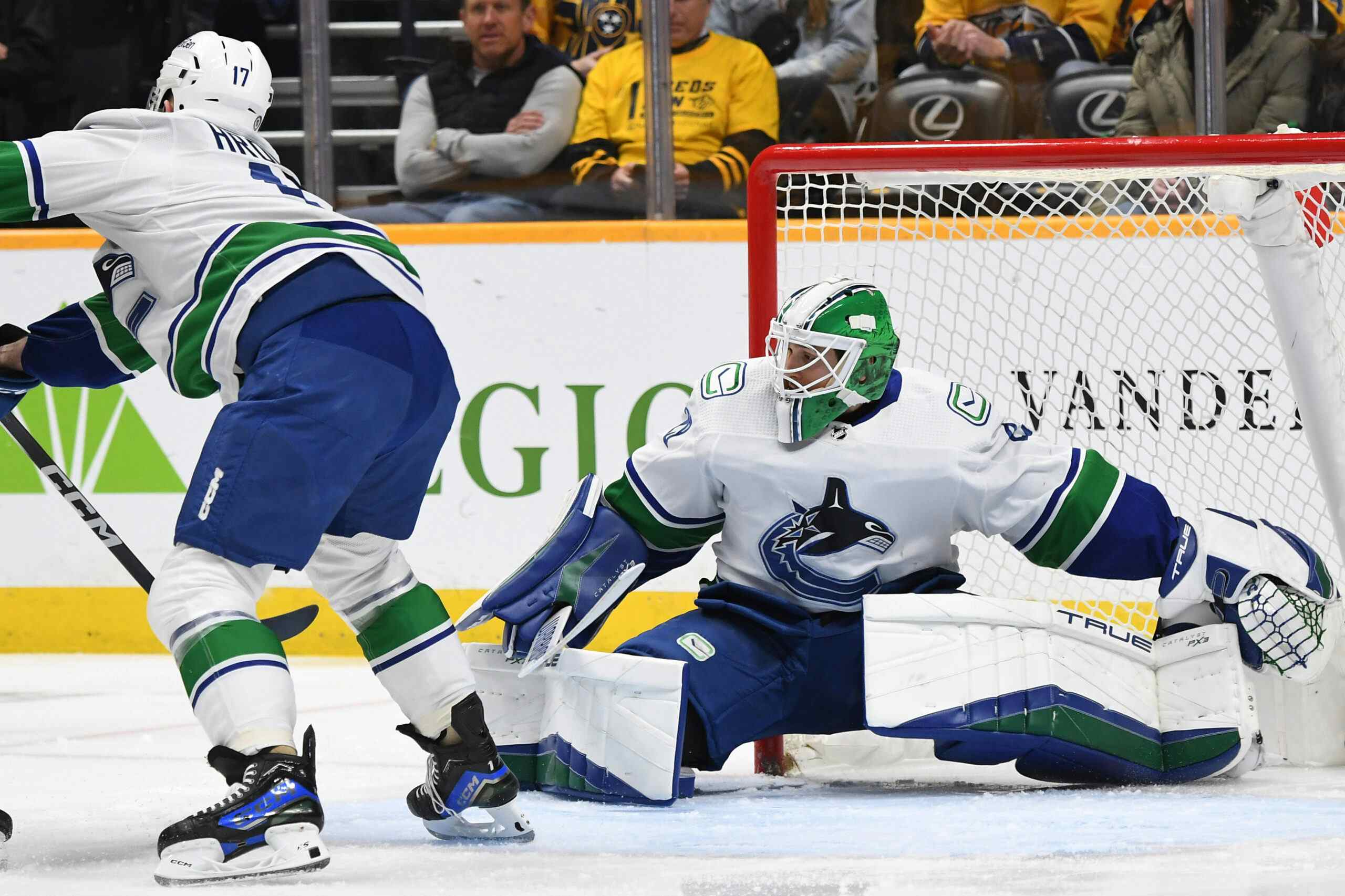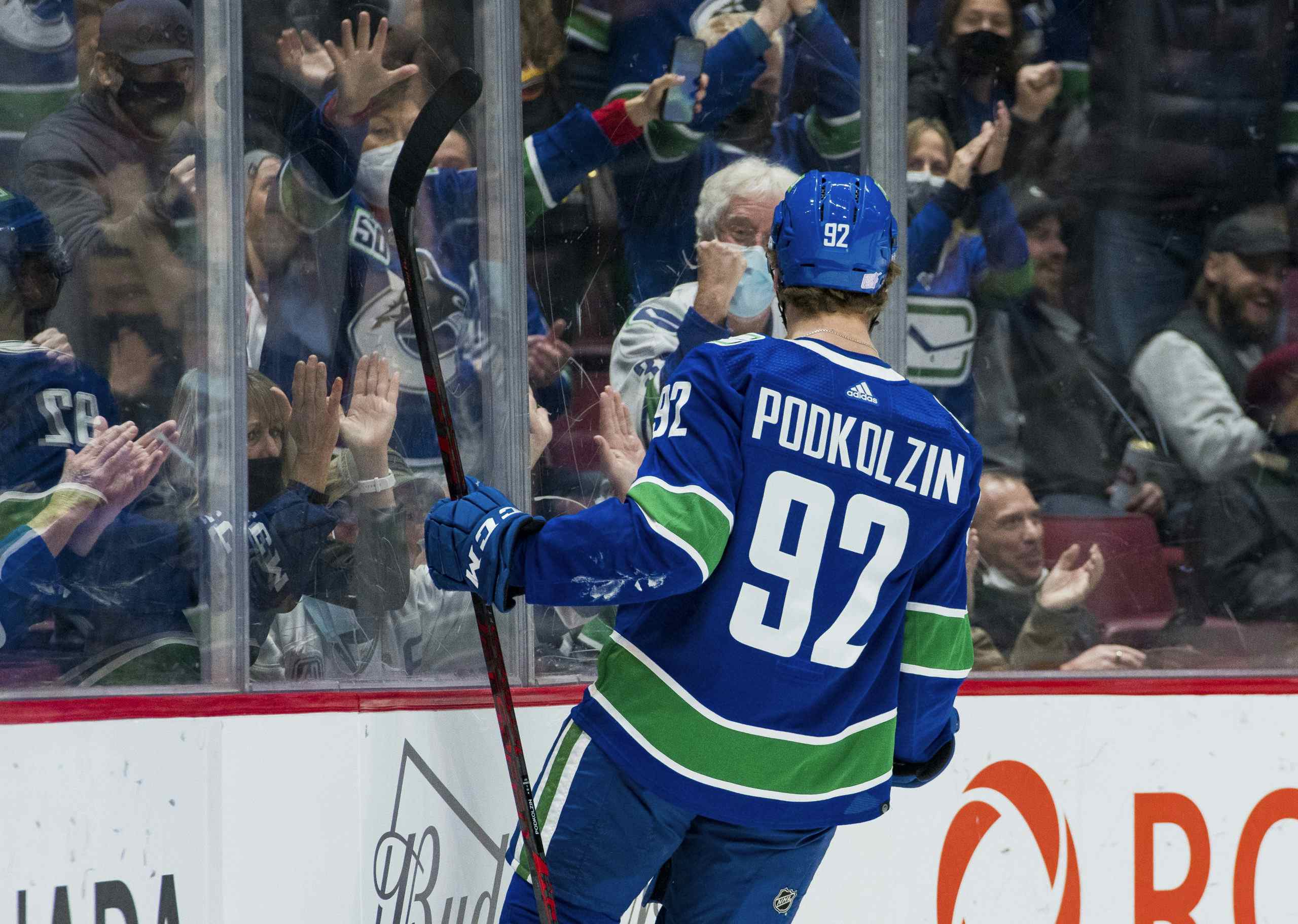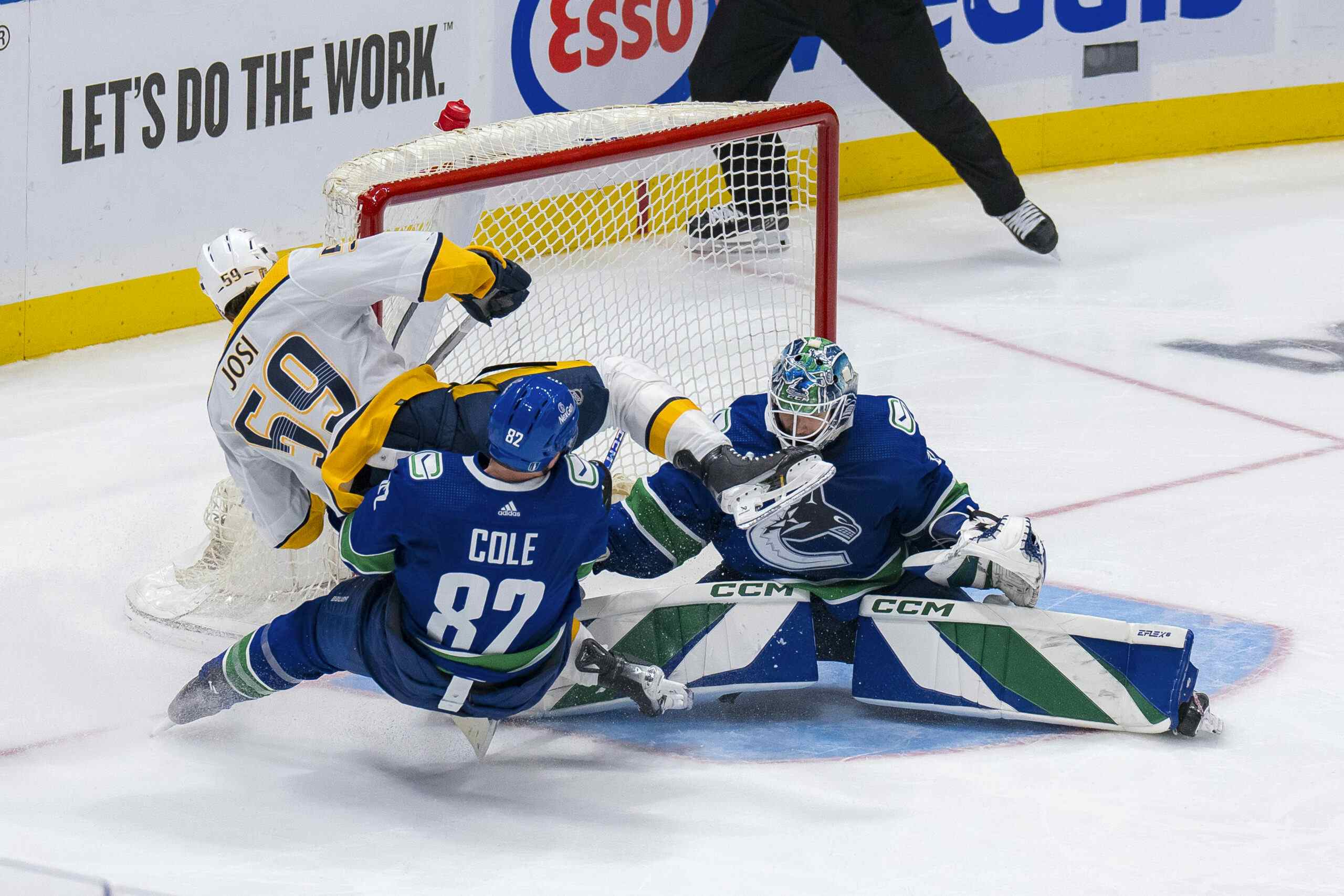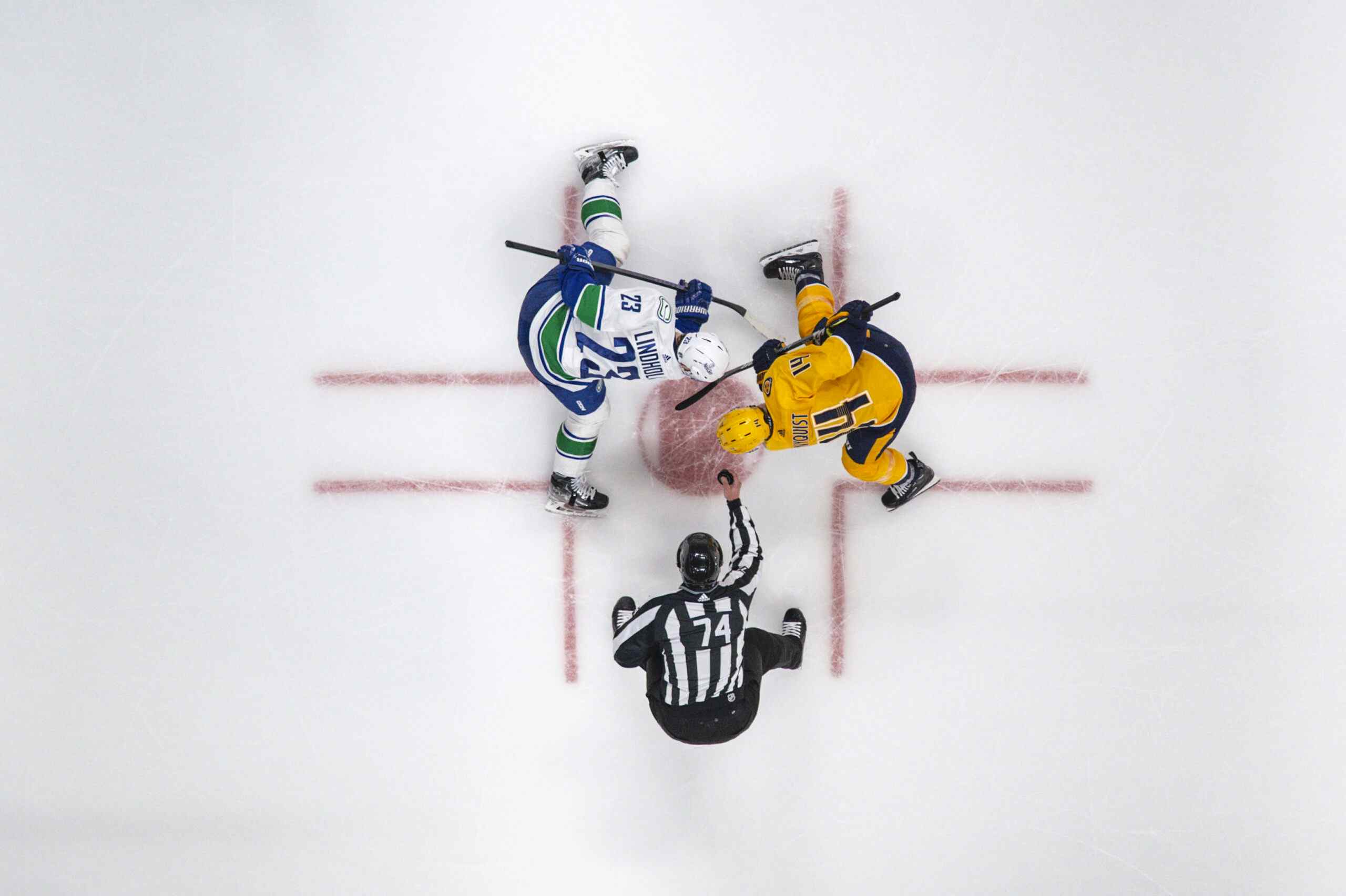Coaching Candidate Profile: Scott Arniel
All week long we’ve been evaluating how the likes of Dallas Eakins, Guy Boucher, John Stevens, Lindy Ruff and Dave Tippett might fit behind the Vancouver Canucks bench. Today we’ll turn our attention to a coach who is currently employed by the organization: long-time American Hockey League benchboss Scott Arniel.
There was a time not too long ago when the former Manitoba Moose head coach was one of the hottest coaching prospects in hockey. Then he got the Columbus job and like a Russian sniper drafted by the Blue Jackets his "highly touted" status came to an abrupt halt. As we’ve argued previously, Arniel got a bit of a raw deal in Columbus, and I for one don’t think the struggles of those inept Scott Howson clubs were necessarily the result of Arniel’s coaching. Other closer observers, however, don’t have quite such a charitable assessment.
Let’s look into Arniel’s resume and credentials after the jump.
The Resume
Of the potential coaches we’ve covered over this past week, none of them were as impactful at NHL level players as Scott Arniel was. Over a decade long NHL career Scott Arniel tallied nearly one-hundred and fifty goals and well north of three-hundred points as a two-way winger who occassionally played in the top-six. Arniel played for the Jets, Sabres and finally the Bruins in his career, before carrying on for several seasons in the IHL with the Houston Aeros, San Diego Gulls, Manitoba Moose and the Utah Grizzlies (great team names every one).
It was during a partial season with the Aeros, actually, that Scott Arniel got his first taste of coaching. When then Aeros assistant Dave Tippett was promoted during the 95-96 season, Arniel became a "player assistant coach" for the duration of that campaign. Thereafter he moved on to play for the Utah Grizzlies and the Manitoba Moose for a few years, and immediately joined the Manitoba Moose as an assistant coach upon his retirement (working under Randy Carlyle).
Arniel was an assistant with the Moose for two seasons, working under Carlyle for one season and under Stan Smyl the next. Following the 2001-02 season, Arniel found himself an NHL job running special teams for Lindy Ruff’s Buffalo Sabres. The season before he arrived in Buffalo, the Sabres were a super elite penalty-killing team that struggled enormously on the power-play, and Arniel didn’t much change that. The Scott Arniel run Sabres power-play capitalized on 14.4% of opportunities in Arniel’s first season (with Alexei Zhitnik and Chris Gratton getting the majority of the club’s power-play ice-time) and 15.5% in Arniel’s second season (Stu Barnes was on Buffalo’s second power-play unit that season… Seriously).
In Arniel’s third season on the job an influx of young talent (Danny Briere, Maxim Afinogenov, and Brian Campbell) helped propel the conversion rate of Buffalo’s power-play north of twenty percent for the first time in his tenure. Looks to me like Buffalo’s power-play struggles while Arniel was in charge were largely personnel based, with his five-on-four unit humming when he was finally given some talent to work with. Buffalo’s penatly-killing was dominant throughout Arniel’s tenure as Buffalo’s assistant coach in charge of special teams…
Following his third and most successful season as an NHL assistant coach, Scott Arniel tookover from Alain Vigneault – who was promoted to coach the Vancouver Canucks – behind the Manitoba Moose bench. Arniel’s Moose clubs were largely veteran teams that leaned heavily on players like Curtis Genoway, Marco Rosa, Lee Goren and Brad Moran. The odd contribution from a young prospect – like Michael Grabner one year, or Sergei Shirokov one year, or Alex Edler one year – was more the exception than the rule.
Anyway Arniel’s Moose were absurdly successful in the regular season, as Arniel amassed a 181-106-33 record as Manitoba’s head coach. The Moose were less successful, generally speaking, in the playoffs under Arniel. Despite a run to the Calder Cup final in 2009, Arniel’s playoff record as an AHL benchboss is just a tick above .500 at 24-23.
Following the 2009-10 season, Arniel was a hot commodity on the coaching market with everybody talking him up in much the same way they fawn over Dallas Eakins now. True story. Unfortunately for Arniel he landed with the Blue Jackets and we’ll get into that more momentarily…
The Columbus Disaster
To call Arniel’s tenure with the Blue Jackets an abject disaster might be putting it too kindly. But seriously, what rotten luck Arniel had in that job. It’s really quite stupendous.
Columbus went from a 44.4% Fenwick team the season before Arniel tookover, to a 50.9% Fenwick team in his first season behind the bench (they were even better in score close situations). Unfortunately the team recieved .913 goaltending at even-strength, which is completely pathetic, and posted a -43 goal differential on the season. A plus possession team with a -43 goal differential! That’s seriously messed up.
The next season, well, it was significantly worse. The Blue Jackets traded for Jeff Carter that summer, and he was never really happy about it as we all know. They were also without James Wisniewski, who was suspended forever during Shanahan’s first swashbuckling, gutty preseason as chief NHL disciplinarian. The Blue Jackets won only one of their first eight contests and two of their first eleven games (losing four games in regulation by a single goal)…
Again, the Blue Jackets that season were a borderline positive possesion club (they were a positive possession club in score close situations, though perhaps that’s because they were always down a goal). The real kicker was, surprise, the goaltending which was even worse than the season previous (.910 at even-strength in Columbus’ first 41 games, Steve Mason posted an .898 save percentage at even-strength through twenty-four starts). The Blue Jackets had a PDO below 98 when Scott Arniel lost his job…
After the Blue Jackets fired Arniel their possession game went into the tank. But that summer they acquired Sergei Bobrovsky and lo and behold Todd Richards is a genius while Scott Arniel’s reputation will take years to recover from the Columbus mess. So much of being a successful NHL coach is timing, and there’s no worse timing than "being hired by a team that has invested in Steve Mason."
Not that Arniel’s tenure in Columbus was perfect, by any means, but his teams certainly competed hard every night and were absolutely, inarguably, betrayed by sub-AHL caliber goaltending. One area of concern, I suppose, would be Arniel’s relationship with young players – something Mike Gillis has said is a priority going forward. Obviously I’m not in the room, but there are a couple of red flags from Arniel’s time in Columbus that are worth bringing up here.
The first is Derick Brassard, who lost his job in the Blue Jackets top-six in the fall of 2011. At one point, Brassard’s agent Alan Walsh released a statement that just blasted Arniel:
"While I have tremendous respect for (general manager) Scott Howson and the rest of Columbus’ management team, the situation regarding Derick Brassard has become untenable. The coach has a history of burying players and using them as scapegoats to mask his own lack of success on the ice. Derick has been singled out, almost from the very beginning of the season, to be the fall guy in case things don’t go well. The Columbus organization cares about Derick and has been good to him, but at some point, one has to say, enough is enough."
Wow. Arniel was also in charge during Columbus’ completely mystifying handling of Ryan Johansen during his rookie year.
Once again, I’ll happily argue that Scott Arniel was dealt an unwinnable hand by Scott Howson in Columbus. At some point I hope he gets another shot at coaching in the National Hockey League because his Columbus clubs, by the underlying data, were way, way better than their results would suggest. That said there’s also a reason that Arniel’s name no longer comes up when a coach loses his job (outside of in Vancouver, of course, where he’s employed as the head coach of the team’s minor league affiliate and is mentioned as a candidate almost by default)…
Approaches on Coaches:
To get a better handle on Arniel’s tenure in Columbus, we chatted with long time Columbus Dispatch beat writer Aaron Portzline. Aaron is one of the most well respected beat writers in the game, and has a very different view of Scott Arniel’s tenure in Columbus than I do.
On how things started out well for Arniel and quickly went sideways exposing his lack of experience:
"It got off to a great start (for Arniel in Columbus). They were 14-6 in his first twenty games and I think the Blue Jackets thought that they had fixed their problems under previous coach Ken Hitchcock, and I think Scott Arniel felt that way as well.I think he was a little overwhelmed this being his first job and not an easy situation to walk into. I think there was an absolutely critical error – and I blame this as much on Scott Howson for allowing it to take place as I do on the other Scott (Arniel) – but they surrounded Arniel with a bunch of assistant coaches who had never coached in the NHL before, or never had their current jobs in the NHL before.So when the you know what hit the fan, there were a bunch of people who thought they knew what to do and how to get out of it, but no one who had ever done it before."
On my assessment that Arniel’s Columbus teams were betrayed by woeful goaltending:
"Goaltending makes all coaches look good or bad. Steve Mason, obviously, his numbers were not good, he was not a good goaltender those two seasons. But there were a lot of nights where you’d watch that team play and think "Patrick Roy in his prime would not have a chance to win this game." The team was so discombobulated."
On Scott Arniel’s record developing younger players:
"Arniel’s ability to develop young players was one of the surprising and frustrating parts of his tenure for the Blue Jackets organization. They expected the young players to launch under Arniel, and I don’t think he created for them a clear idea of what was expected, or the path to that. I think there was a sense of confusion a lot of times."
On whether Arniel was dealt an impossible hand in Columbus:
"If you look at the second year team and the talent that was on it – and you can pick apart some of those players – I mean Jeff Carter did not handle his time in Columbus well, and Rick Nash has been exposed in New York for what he was in Columbus as well (where it was easier to blame other people) in that he’s a hard guy to find people to play with. But that was a really talented team, maybe it wasn’t a playoff team, but there’s no way it should’ve been a lost cause so quickly into that season."
Finally here’s Aaron Portzline on whether Scott Arniel coaches an uptempo style:
"Arniel, especially in his second year, tried to play an uptempo style. You’ll recall they added Jeff Carter in between his first and second year. So they had two forty goal scorers. This was a team that should’ve scored goals.They started 0-7-1 and pretty much pulled the chute on playing a puck possession type game. That went out the window. Columbus was pushing up against the cap that year, and you don’t spend that money to be a responsive, play it safe team. When you change your system two weeks into the season that’s a tell-tale sign of a situation that’s already lost."
Thanks to Aaron for taking the time to chat with us for this piece. Follow him on Twitter.
Coaching Profile Series:
Recent articles from Thomas Drance






